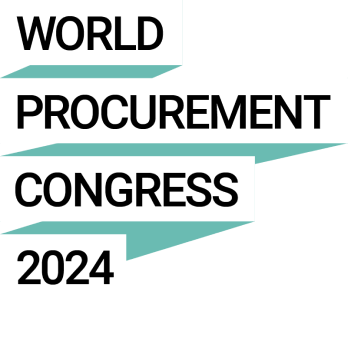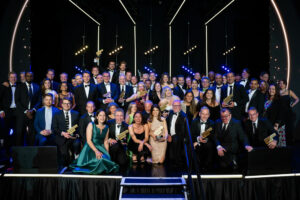Tony Roberts, CPO of Urenco – the UK-headquartered international supplier of enrichment services and fuel cycle products for the civil nuclear industry – discusses the impact of his function’s new organisational structure, how the company’s journey to net-zero will impact its supply chain, as well as the importance of supporting suppliers in both the short and long term as businesses continue to grapple with the sustained impact of the polycrisis.
Could you share a little bit of insight about your procurement team structure, strengths and challenges?
Three years ago, we finalised our structural transformation to a global category-focused team. We are now embedding this philosophy and working hard to ensure we have the right internal relationships to allow us to maximise the opportunity that a more strategic long-term plan can deliver. I’m immensely proud of the way the team has gained the trust of our business partners; their can-do attitude, delivery focus and professional execution have been exceptional, and I’m constantly amazed by the positive feedback I get on their performance.
We’ve invested resources in specialist risk-management capability – which is a legacy of Covid, when we realised we needed a more systematic approach to mitigation planning. Finally, our transactional efficiency programme has been boosted by the appointment of a manager with a passion for automation and systems-thinking capability. I feel we have the right blend now between category planning, risk management and efficiency, which will position us well for the future.
We are in the middle of a period of rampant inflation, what are you doing differently to manage this environment?
We recognise that our supply chain is under stress from significant inflationary pressure. We understand that some suppliers are better placed to manage this than others and we are working with supply partners across our business to assess their short-, medium- and long-term responses to the current situation.
As well as understanding how we can drive mutual cost optimisation, we are asking how we can support suppliers, for example, if longer-term arrangements would be helpful. Importantly, we want to know what we can do to help as we will only weather this storm if we work together. History tells us there will be times when we need our suppliers to help us – Covid was a great example of that – so we stand ready to support our suppliers today.
Are you preparing for a period of recession? If so, what are you doing differently to help the organisation continue to thrive?
When we went into the pandemic, we prepared ourselves for significant amounts of supplier failure. We developed rapid response processes and educated our teams to recognise distress signals early. We have not lost this focus, so we feel well-placed to react to any recession-triggered events.
Alongside that, we are talking to our suppliers to make sure we understand their situations and looking to accelerate spending wherever possible to de-risk our supply chain. Where the business case supports it, we will invest in our suppliers’ ability to deliver and we will support them with materials purchases, recruitment and capability development.
Cyber is a huge and growing threat – what are you doing to mitigate the risk from a people, process and technology perspective?
We’ve invested a lot of time with our Chief Information Security Officer in developing a plan for cybersecurity. This is centred around three key pillars – identifying the partners we feel present the most risk and understanding what trigger events might change that risk profile, making very clear what our IT security expectations and requirements are and assuring ourselves that suppliers meet them, and creating peer-to-peer IT security relationships between us and our partners to share best practice and information on emerging risks.
We recognise the risk in the supply chain and want to ensure we have aligned and consistent mitigation strategies developed with the help and support of our suppliers. We are looking to set up networks that ensure a good flow of risk information and best practice sharing which will increase our collective defence mechanisms.
What new capabilities are you looking to build/grow/develop in your team to help you navigate this period of volatility?
Maximising the opportunities of the future and mitigating risks will be delivered by the development and execution of great category strategies. We have invested in additional resources to support this, we’ve added new category managers to our team, and are hiring an internal coach/consultant to support our category teams in their planning and stakeholder-management processes.
Decarbonising our supply chain is a critical mission for us. We have invested in systems capability to build a robust baseline measurement and now need to turn our attention to how our whole procurement approach should change to ensure we meet our target to be net-zero by 2030. This will require new skills and capabilities in our team as well as a reimagining of the current, perhaps more traditional, procurement capabilities.
Are you planning fundamental changes to your supply chain? If so, why and what are they?
We are targeting being net-zero in our Scope 3 emissions by 2030. This may well result in changes to our supply chain, as our ambitious targets could lead us to extend existing relationships or develop new ones with suppliers that share our ambition or are able to support us more quickly. This is a new dynamic for supplier selection, qualification and relationship development and may well lead to changes in the ways we currently work.
We are investing our efforts today in ensuring that we have a robust baseline to measure the effects of our plans. When complete, we’ll be engaging our supply chain on this new challenge and will see what supply chain changes this might necessitate. We are hopeful and confident that the majority of relationships we enjoy today will take us towards our target and our priority will be working with our current suppliers to tackle this issue.

















